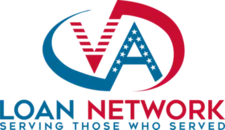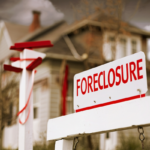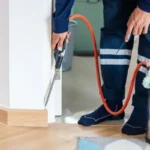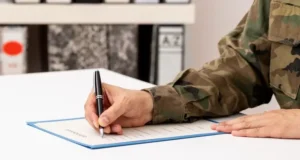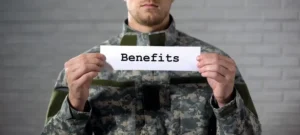Last updated on December 26th, 2024 at 12:15 am
Foreclosed homes, often perceived as challenging investments, can present valuable opportunities, particularly for veterans using a VA loan.
These properties are typically priced below market value, which can be enticing for those looking to maximize their investment.
This guide will explore how veterans can use VA loans to purchase foreclosed homes, the associated benefits, risks, and the specific rules that govern such transactions.
In this Article
The Appeal of Foreclosed Homes
Foreclosed homes can be an attractive option for many buyers due to their potential for significant cost savings. Typically, these properties are sold at a discount compared to market value, which can make them an appealing choice for budget-conscious buyers.
For veterans, using a VA loan to purchase a foreclosed home combines the financial advantages of both the property type and the loan program.
Current Foreclosure Statistics (2024)
| Statistic | Data |
|---|---|
| Total Foreclosures (Q1 2024) | 15,000 |
| Average Discount on Foreclosed Homes | 20% below market value |
| Foreclosure Rate (2024) | 1.2% |
| Average Days on Market | 45 days |
Source: National Association of Realtors (NAR)
Can You Buy a Foreclosure with a VA Loan?
Yes, you can absolutely buy a foreclosed home with a VA loan if you meet certain requirements. This is a fantastic option for veterans looking to take advantage of discounted property prices while benefiting from the perks of a VA loan. Here’s a closer look at what’s involved:
Eligibility and Requirements
- VA Eligibility: To use a VA loan for purchasing a foreclosed home, you must first be eligible for the VA loan program. This generally includes meeting the VA’s minimum service requirements, which are set to ensure that the borrower has served or is currently serving in the military.
- Property Requirements: The foreclosed home must meet the VA’s Minimum Property Requirements (MPRs). These requirements are designed to ensure that the home is safe, sanitary, and structurally sound. If the property does not meet these standards, it may not qualify for a VA loan.
- Lender Requirements: In addition to VA requirements, you must also meet the lender’s specific criteria. This typically includes:
- Credit Score: The lender may have a minimum credit score requirement.
- Debt-to-Income Ratio (DTI): Lenders will assess your DTI ratio to ensure you can manage your mortgage payments along with other financial obligations.
- Income Requirements: You must demonstrate stable and sufficient income to support your mortgage payments.
Things to Consider When Buying a Foreclosed Home with a VA Loan
Here are some things to keep in mind when purchasing a foreclosed home with a VA loan:
Considerations for Buying Foreclosures
| Consideration | Details |
|---|---|
| Price Negotiation | Limited negotiation as lenders often set fixed prices. |
| Repairs | Properties are usually sold “as-is,” meaning no repairs are made before sale. |
| Inspection Period | Request a longer inspection period due to potential delays in bank responses. |
| Where to Look | Search for foreclosures in bank-owned properties, real estate-owned (REO) listings, and government foreclosures. |
- Price Negotiation: When dealing with a foreclosure, you might find limited room for negotiating the price. The lender usually sets the price, and there’s often less flexibility compared to buying a home that’s not in foreclosure.
- Repairs: Foreclosed homes are frequently sold “as-is,” meaning that no repairs will be made before the sale. You may need to budget for necessary repairs and maintenance after purchase.
- Inspection Period: It’s advisable to request a longer inspection period. Foreclosed properties often require a more thorough examination, and banks may take additional time to respond to inspection findings or requests for repairs.
- Where to Look: Foreclosed properties can be found through various channels, including:
- Bank-Owned Properties: These are properties that the bank has taken ownership of following a foreclosure.
- Real Estate-Owned (REO) Listings: Properties that have reverted to the lender through foreclosure are listed as REO.
- Government Foreclosures: These are properties foreclosed upon by government agencies, which may offer additional buying opportunities.
Understanding these key points can help veterans navigate the process of purchasing a foreclosed home with a VA loan, making it a more manageable and potentially rewarding investment.
VA Loan Rules for Foreclosed Homes
When using a VA loan to buy a foreclosed home, the property must meet the VA’s minimum property requirements (MPRs). These guidelines are designed to ensure that the property is safe, sound, and sanitary. Here are the key MPRs you need to be aware of:
- Residential Property: The home must be intended for residential use.
- Roof Condition: The roof must be free of major defects that could lead to future problems.
- Major Mechanical Systems: Systems such as heating, electrical, and plumbing must be in good working order.
- Windows: Broken windows must be repaired or replaced.
- Lead-Based Paint: Homes built before 1978 must be free of defective lead-based paint. Peeling paint must be scraped and repainted.
- Size and Layout: The property should be a sufficient size to meet basic living needs.
- Pests and Structural Issues: The home must be free of pests like termites, as well as fungus and dry rot.
- Sanitary Sewage Disposal: There must be safe and sanitary sewage disposal.
- Access: The property should have access to all-weather public or private streets.
- Attics and Crawl Spaces: These areas must be accessible and properly vented.
These requirements can complicate the process of buying a foreclosed home but are in place to protect you from potential issues that could arise from purchasing a property in poor condition.
John Harrison, a mortgage advisor at HomeTrust Financial, comments, “Veterans should be prepared for a thorough evaluation process when buying a foreclosed property with a VA loan. The property needs to meet specific standards, and any deficiencies must be addressed before the loan can be approved.”
How to Navigate the VA Loan Process for Foreclosures
- Pre-Approval: Start by getting pre-approved for a VA loan to understand your budget and strengthen your offer.
- Find a Real Estate Agent: Work with an agent experienced in foreclosures who can guide you through the process and help identify suitable properties.
- Property Inspection: Conduct a detailed inspection to uncover any potential issues that might affect the VA loan approval.
- Review MPRs: Ensure the property meets VA’s MPRs. If it doesn’t, you may need to negotiate repairs or consider other properties.
- Appraisal: The VA appraisal will assess the property’s condition and value, ensuring it meets the loan requirements.
- Closing Process: Be prepared for a potentially longer closing process due to additional paperwork and approvals required for foreclosed properties.
Advantages of VA Loans for Foreclosed Properties
VA loans offer several benefits that can make purchasing a foreclosed home more attractive:
- No Down Payment: VA loans typically do not require a down payment, which can significantly reduce the upfront cost of purchasing a home.
- Lower Interest Rates: VA loans often come with lower interest rates compared to conventional mortgages, reducing long-term costs.
- No Private Mortgage Insurance (PMI): Unlike conventional loans, VA loans do not require PMI, which can further lower your monthly payments.
- Flexible Credit Requirements: VA loans are more forgiving of lower credit scores, making it easier for veterans with less-than-perfect credit to qualify.
- Low Closing Costs: Closing costs for VA loans are generally lower, often around 3% of the loan amount.
- Streamlined Interest Rate Reduction Program: VA offers a streamlined program for refinancing to lower your interest rate without extensive paperwork.
Emily Wright, a real estate agent at Pinnacle Realty, notes, “The benefits of VA loans, such as no down payment and lower interest rates, are especially valuable when purchasing a foreclosed home. These advantages can make a significant difference in the overall affordability of the property.”
Considerations and Risks
While VA loans provide significant benefits, buying a foreclosed property also comes with risks and challenges:
- Repair Costs: Foreclosed homes are often sold “as-is,” which means you might encounter unexpected repair costs. If the home requires significant repairs, you need to ensure you can cover these expenses.
- Title Issues: Foreclosed properties may come with unresolved liens or other title issues. Conducting a thorough title search is essential to avoid inheriting these problems.
- Extended Closing Process: The process of buying a foreclosed home can be more complicated and time-consuming than purchasing a traditionally sold property due to additional paperwork and approvals.
Laura Collins, a foreclosure specialist at Elite Realty, advises, “Be prepared for a potentially lengthy and complex process when buying a foreclosed property. Thorough inspections and diligent research can help mitigate some of the risks involved.”
Steps to Buying a Foreclosed Home with a VA Loan
- Research Foreclosures: Use real estate websites and local listings to find foreclosed properties in your desired area.
- Get Pre-Approved: Obtain pre-approval for a VA loan to understand your financial limits and strengthen your purchase offer.
- Engage a Real Estate Agent: Work with an agent who has experience dealing with foreclosures and VA loans.
- Inspect the Property: Conduct a detailed inspection to assess the condition and identify potential issues.
- Make an Offer: Submit your offer through your agent, keeping in mind that negotiations may be required.
- Complete the Purchase: Finalize the purchase with the necessary paperwork, addressing any issues identified during the inspection.
The Bottom Line
Buying a foreclosed home with a VA loan can be a smart financial move, providing you meet the VA’s property requirements and are prepared for the challenges involved. By leveraging the benefits of a VA loan and carefully navigating the process, you can take advantage of the opportunities that foreclosed homes present.
FAQs
1. Can I use a VA loan to buy any foreclosed home?
Yes, VA loans can be used to purchase foreclosed homes as long as the property meets VA’s minimum property requirements.
2. What are the VA minimum property requirements (MPRs)?
MPRs include requirements for safety, sanitation, and structural soundness, such as a roof without major defects, functional major systems, and no lead-based paint.
3. Are there risks associated with buying a foreclosed home?
Yes, risks include potential hidden repair costs, title issues, and a potentially longer closing process. It’s essential to conduct thorough inspections and title searches.
4. How do I find foreclosed properties?
Foreclosed properties can be found on websites like Foreclosure.com and Zillow, or by working with a real estate agent specializing in foreclosures.
5. What should I do if the foreclosed home needs significant repairs?
Evaluate the repair costs and ensure they fit within your budget. If necessary, negotiate repairs or consider alternative properties.
6. Do foreclosed homes come with warranties?
No, foreclosed homes are typically sold as-is, and sellers are not required to provide warranties or disclosures.
7. Is it necessary to get pre-approved for a VA loan before bidding on a foreclosed property?
While not mandatory, pre-approval can strengthen your offer and streamline the purchasing process.
8. What should I expect during the closing process for a foreclosed home?
The closing process may be more complicated and lengthy due to additional paperwork and approvals. Be prepared for potential delays.

